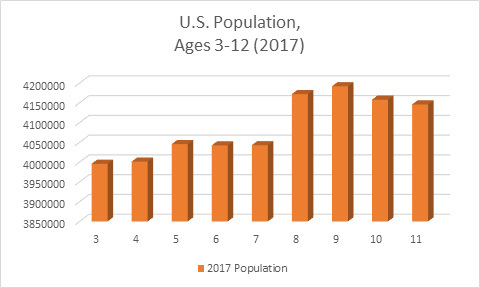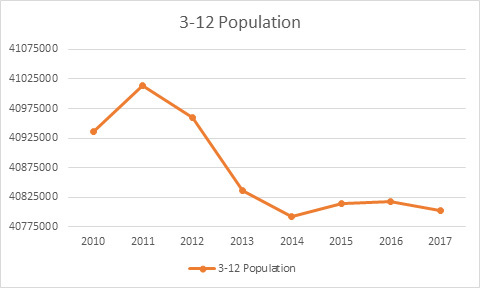As the end of October approaches, you may have noticed some spooky changes in your neighborhood. Pumpkins are appearing on doorsteps, cotton spiderwebs lace the local greenery, and children are trying on their costumes and masks for size. Families are visiting corn mazes, and kindergartens are taking their yearly field trip to the local pumpkin patch. Halloween is coming, and preparing for this holiday should involve more than stocking up on fun-sized candy bars. Below our experienced Las Vegas pedestrian accident attorneys have provided statistics and laws to remember for your next Halloween activities.
There is some debate as to when it is appropriate to begin and cease trick-or-treating. Very young children may not be old enough to understand the holiday and shouldn’t be up late consuming sugary treats anyways. Teenagers often draw suspicion that they may be up to more tricking that treat gathering. One town in Canada passed a law banning anyone over the age of 16 from going door to door on Halloween. If caught out soliciting candy on Halloween night, these Canadian teens risk a $200 fine, in addition to a sugar crash. [1]

Although there are some outliers, children generally trick-or-treat between the ages of 3 and 12. There is some variation among each of these age-year cohorts, but presently there are roughly 4 million children of each age. [2]

This segment of the U.S. population has been mostly stable since 2010, and it hovers somewhere around 40.8 million children. [3] The peak was in 2011, with a trough in 2014. This trend suggests that the Great Recession may have had a suppressing effect on fertility in during 2009-2011, when the national economy (and Nevada’s in particular) was reeling from the crisis of 2008-2009.
If the nation’s trick-or-treating population is totals about 40 million children, this equates to roughly 375,000 Nevadans outside trick-or-treating every Halloween night. That is because Nevada, with a population of roughly 2.998 million, represents about .92% of the total U.S. population (325.7 million individuals).
However, there is a dark side to this traditionally spooky holiday. Anyone who has grown up trick or treating has likely heard the warnings about poisoned candy or candied apples booby-trapped with razor blades. Many former trick-or-treaters remember having their parents inspect their haul for potential dangers before being allowed to sample the bounty.
Another source of potential injury on Halloween lies in the fact that the holiday draws a multitude of pedestrians onto the street at night, when they are least visible to cars. The Centers for Disease Control and Prevention defines a pedestrian as any person on foot, walking, running, jogging, hiking, sitting, or lying down who is involved in a motor vehicle traffic crash. (This definition excludes individuals on roller skates, inline skates, skateboards, baby strollers, scooters, toy wagons, motorized skateboards, motorized toy cars, Segways, wheelchairs, and motorized scooters for those with disabilities.) This definition would encompass most children out walking on Halloween night. In 2016, there were 5,987 pedestrians killed in traffic crashes in the United States. On average, this equates to one pedestrian being killed every 1.5 hours. Seventy-five percent of these fatalities occurred in the dark. [4] Many trick-or-treaters dress in dark clothing, further reducing their visibility. Add sugar to the equation, and you get a lot of small, minimally-visible pedestrians who are liable to run into streets without looking.
The National Highway Traffic Safety Administration reports that Halloween is one of the top three days for pedestrian injuries and fatalities. Children are four times more likely to be struck by a motor vehicle on Halloween than on other nights of the year. [5] This Halloween night, take basic precautions to ensure that your child is visible to drivers. Make sure children are supervised and have a planned route to follow. Put reflective tape on any dark costumes and treat buckets to increase visibility. Don’t wear disguises that obstruct vision. With a little common sense and preparation, your child can avoid bodily harm on Halloween.
[1] https://time.com/4976689/how-old-is-too-old-trick-or-treat-halloween/
[4] https://crashstats.nhtsa.dot.gov/Api/Public/ViewPublication/812493
[5] https://exchange.aaa.com/safety/child-safety/halloween-safety/#.W9N10WhKg2w

